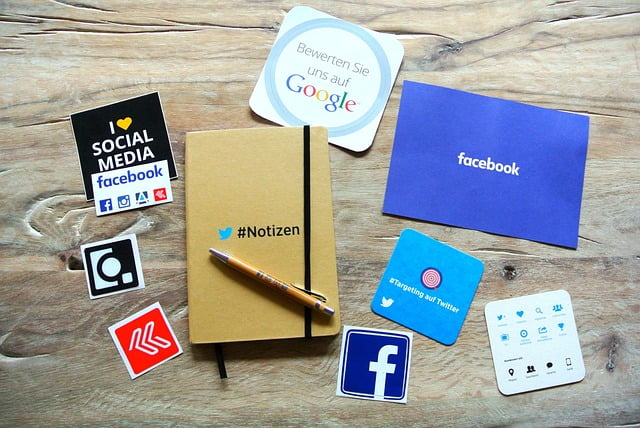Save Money Without Bank – Money is a medium of exchange that is widely accepted in transactions for goods and services. It is a universal measure of value that allows people to trade and acquire the things they need or want. Money can take many forms, including physical currency such as coins and bills, digital currency, or assets that can be easily converted into cash.
Saving money is important for financial stability, but traditional methods of savings such as keeping money in a bank account may not always be the most effective or practical option for everyone.
Benefits of Saving Money
Saving money has many benefits, both in the short term and the long term. Here are some of the key benefits of saving:
- Emergency Fund: One of the most important benefits of saving money is having an emergency fund. This is money set aside for unexpected expenses, such as medical bills, car repairs, or job loss. Having an emergency fund can help you avoid going into debt or relying on credit cards to cover these expenses.
- Financial Security: Saving money can also provide a sense of financial security. Knowing that you have money saved can reduce stress and anxiety about the future, and can give you the freedom to make choices based on your goals and values, rather than just your financial situation.
- Retirement: Saving for retirement is essential to ensure that you can maintain your standard of living when you’re no longer working. By starting to save early and consistently, you can take advantage of compound interest and potentially grow your savings significantly over time.
- Achieving Financial Goals: Whether it’s buying a house, starting a business, or taking a dream vacation, saving money can help you achieve your financial goals. By setting specific savings goals and sticking to a budget, you can work towards these goals and make them a reality.
- Peace of Mind: Finally, saving money can provide a sense of peace of mind. Knowing that you have a financial cushion and a plan for the future can help you feel more confident and in control of your finances.
Saving money is an important habit to develop for both your financial well-being and your peace of mind. By setting specific goals, creating a budget, and being disciplined in your spending habits, you can start reaping the many benefits of saving money today.
Medium of Financial Savings
When it comes to financial savings, there are many different mediums or vehicles you can use to save your money. Here are some of the most common ones:
1. Savings Accounts
Savings accounts are a popular option for storing your savings. They are typically offered by banks and credit unions, and they offer a safe place to deposit your money while earning some interest. Savings accounts are easy to access and are FDIC-insured, which means your money is protected up to a certain amount.
2. Certificates of Deposit (CDs)
CDs are another type of savings account offered by banks and credit unions. They typically offer higher interest rates than regular savings accounts, but they require you to leave your money in the account for a fixed period of time, usually anywhere from three months to five years. If you withdraw your money before the CD matures, you may be subject to penalties.
3. Money Market Accounts
Money market accounts are similar to savings accounts, but they typically offer higher interest rates. They also typically require higher minimum balances and may have limits on the number of withdrawals you can make per month.
4. Individual Retirement Accounts (IRAs)
IRAs are retirement savings accounts that offer tax advantages. There are two main types of IRAs: traditional and Roth. With a traditional IRA, you contribute pre-tax dollars, and the money grows tax-deferred until you withdraw it in retirement. With a Roth IRA, you contribute after-tax dollars, but the money grows tax-free and you can withdraw it tax-free in retirement.
5. 401(k) Plans
401(k) plans are retirement savings plans offered by employers. You can contribute pre-tax dollars, and many employers offer matching contributions up to a certain percentage of your salary. The money grows tax-deferred until you withdraw it in retirement.
6. Investment Accounts
Investment accounts, such as brokerage accounts, allow you to invest your money in stocks, bonds, mutual funds, and other securities. These accounts offer the potential for higher returns than savings accounts, but they also come with more risk.
There are many different mediums or vehicles you can use to save your money, depending on your goals, risk tolerance, and time horizon. By understanding the different options available to you and weighing the pros and cons of each, you can make an informed decision about where to save your money and how to best achieve your financial goals.
Save Money Without Bank
Saving money is an essential habit to develop in order to achieve financial stability and security. While many people may associate saving with simply depositing money into a savings account at a bank, there are actually many other ways to save money that can be just as effective, if not more so. In this article, we’ll explore some alternative methods of saving money that you can consider incorporating into your own financial plan.
1. Set a budget
One of the best ways to save money is to create a budget. By setting spending limits for various categories, such as housing, food, and entertainment, you can ensure that you’re not overspending and that you’re setting aside money for savings each month. Make sure to review and adjust your budget regularly to account for any changes in your income or expenses.
3. Use cash
While credit cards and digital payment methods are convenient, they can also make it easy to overspend without realizing it. To avoid this, consider using cash for certain purchases. When you physically see how much money you’re spending, you may be more mindful of your spending habits and more likely to stick to your budget.
4. Cut back on unnecessary expenses
Take a look at your monthly bills and see if there are any services or subscriptions you can cancel or downgrade. For example, you may be able to switch to a cheaper phone plan or cancel a subscription to a streaming service you don’t use very often. Cutting back on these expenses can free up more money for savings.
5. Shop around for deals
Before making a purchase, do some research to see if you can find the item at a lower price elsewhere. Look for coupons, promo codes, and sales to save money on everything from groceries to clothing. By shopping around, you may be able to save a significant amount of money over time.
6. Cook at home
Eating out can cost a lot of money, especially if you eat out often. Try to cook at home. Not only is it generally cheaper, but it can also be healthier and more satisfying. Consider meal planning and meal prepping to save even more time and money.
7. Grow your own food
If you have the space and time, consider starting a garden. Growing your own fruits and vegetables can be a fun and rewarding way to save money on groceries. Plus, you’ll have the satisfaction of knowing exactly where your food comes from and how it was grown.
8. Use public transportation
If you live in an area with reliable public transportation, consider using it instead of driving. Not only is it often cheaper than owning and maintaining a car, but it can also be better for the environment.
9. DIY projects
Instead of hiring someone to do home repairs or improvements, consider doing them yourself. There are countless tutorials and resources available online to help you learn new skills and save money on labor costs.
That’s how to Save Money Without Bank – In conclusion, there are many ways to save money other than depositing it into a savings account at a bank. By setting a budget, cutting back on unnecessary expenses, shopping around for deals, cooking at home, growing your own food, using public transportation, and doing DIY projects, you can start building a strong financial foundation for yourself and your family. Remember, every little bit of savings adds up over time, so even small changes to your spending habits can make a big difference in the long run.
Read Also : Top 10 Items To Have In An Economic Recession


